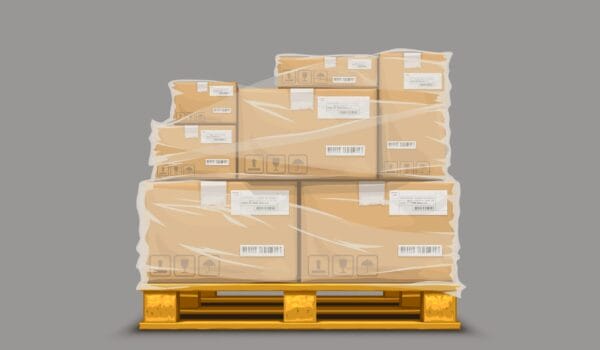The Transportation Intermediaries Association (TIA) is the preeminent organization for the advancement of freight brokers/3PLs. The organization and its conference helps maintain high standards for professionalism which, of course, benefits the entire transportation industry.
This week is the TIA’s Capital Ideas Conference in Phoenix, AZ, and since many brokers work with less-than-truckload (LTL) carriers, we want them to be aware of the latest standards and policies that will affect them and their customers. Here, we wanted to share a quick breakdown of the latest must-know items.
Additionally, we’ve seen a recent trend, following the uptick in transloading, in which many truckload carriers are adopting some procedures that have been standard in the LTL carrier community – particularly when it comes to digitization, freight classification, and cybersecurity.
So here is a rundown of the latest must-know items that could affect LTL brokers and 3PLs:
Announcing eBOL 2.1
The National Motor Freight Traffic Association, Inc. (NMFTA) and its Digital LTL Council recently released version 2.1 of the electronic bill of lading (eBOL) standard launched last summer. Version 2.1 addresses some of the constructive industry feedback to the original eBOL standard and is designed to help promote further digitization of the entire LTL shipment lifecycle.
Enhancements to the eBOL in the newest version include:
- New HTTP methods that add the ability to update or delete eBOL data using the relevant PRO number as the key identifier.
- The expansion of the existing generic limited access locations by adding more specific limited access types.
- The addition of nine-digit postal codes as a valid format.
- The addition of a new “scac” attribute that can be used to return a four-digit Standard Carrier Alpha Code™ (SCAC®).
- The addition of the optional attribute “Weight Unit” to several objects that were missing them, and more.
These are just a few representative features of eBOL 2.1. All the changes are completely compatible with existing versions that have already been downloaded and implemented by most of the industry.
If you are a 3PL who hasn’t implemented the standard, our Digital LTL Council web page has more information about it and how to download the most current version.
Coming Soon: A New API for Pickup Requests and Prepickup Visibility
NMFTA’s Digital LTL Council is in the process of developing APIs that will facilitate the digitization of the entire LTL shipment process. Eventually we will release APIs to cover all of the following:
Operational APIs:
- Rate quotes
- Electronic bills of lading
- Pickup requests and pickup visibility
- In-transit visibility
- Preliminary rate charges
- Financial rate disputes
- Cargo loss and damage claims
Administrative APIs:
- Document retrieval
- Carrier route guides
The next API will be releasing in summer of 2024 for pickup requests and pickup visibility. This is the first standard of its kind to reduce phone calls and keep all parties to a shipment to plan for the pickup of the order. It is designed to make it easy for shippers, brokers and carriers to apply a single standard on which to make a request and monitor the status of the driver to pickup the shipment.
When a shipper submits a pickup request and a carrier responds with a request number, the shipper will then receive information via the API about when the truck is going to be dispatched.
The shipper will additionally receive notifications throughout the entire process, including when the truck is three stops away, as well as if the carrier cannot make the delivery at the expected time. There is also a mechanism to generate notifications if the shipper must cancel the delivery.
NMFTA has partnered with some of the industry leading 3PLs such as C.H. Robinson, Worldwide Express, and TFI International to name a few.
Watch for pickup request/visibility API in the near future and stay tuned as we complete APIs to digitize the entire shipment process.
Simplifying the LTL Freight Classification System
Freight classification is detailed and complex, which is necessary to achieve the accuracy carriers, shippers, and 3PLs are looking for.
And in the 40-plus years we have administered the National Motor Freight Classification (NMFC) system, we’ve always looked for ways to simplify it. So, we recently convened a panel of carriers, shippers, and 3PLs to consider how the system can and should evolve in positive ways.
Some of their suggestions included:
- Moving toward an emphasis on density whenever possible.
- Fewer, more generalized items in the overall classification.
- Revisions to ClassIT (software) to help shippers, brokers and carriers identify the proper classification.
- Use of dimensioners.
- Better collaboration between carriers, shippers, and 3PLs and NMFTA on matters such as disposition, supplements, and docket dates.
- A more streamlined system for notifying stakeholders about changes.
- Clearer guidelines for shippers and 3PLs on how to access supplements.
- Improved education on the NMFC system.
All of these suggestions are being taken into consideration – and as a result, a major evolution of the classification system will be announced this Summer through listening sessions.
Please follow the NMFTA on LinkedIn for announcements about participating in these sessions and a comprehensive look at these changes.
These are recent and/or imminent developments that will affect LTL trucking. We are glad the broker/3PL community at TIA is committed to keeping abreast of changes to this sector.
We encourage you to visit NMFTA’s website to learn more at www.nmfta.org.






